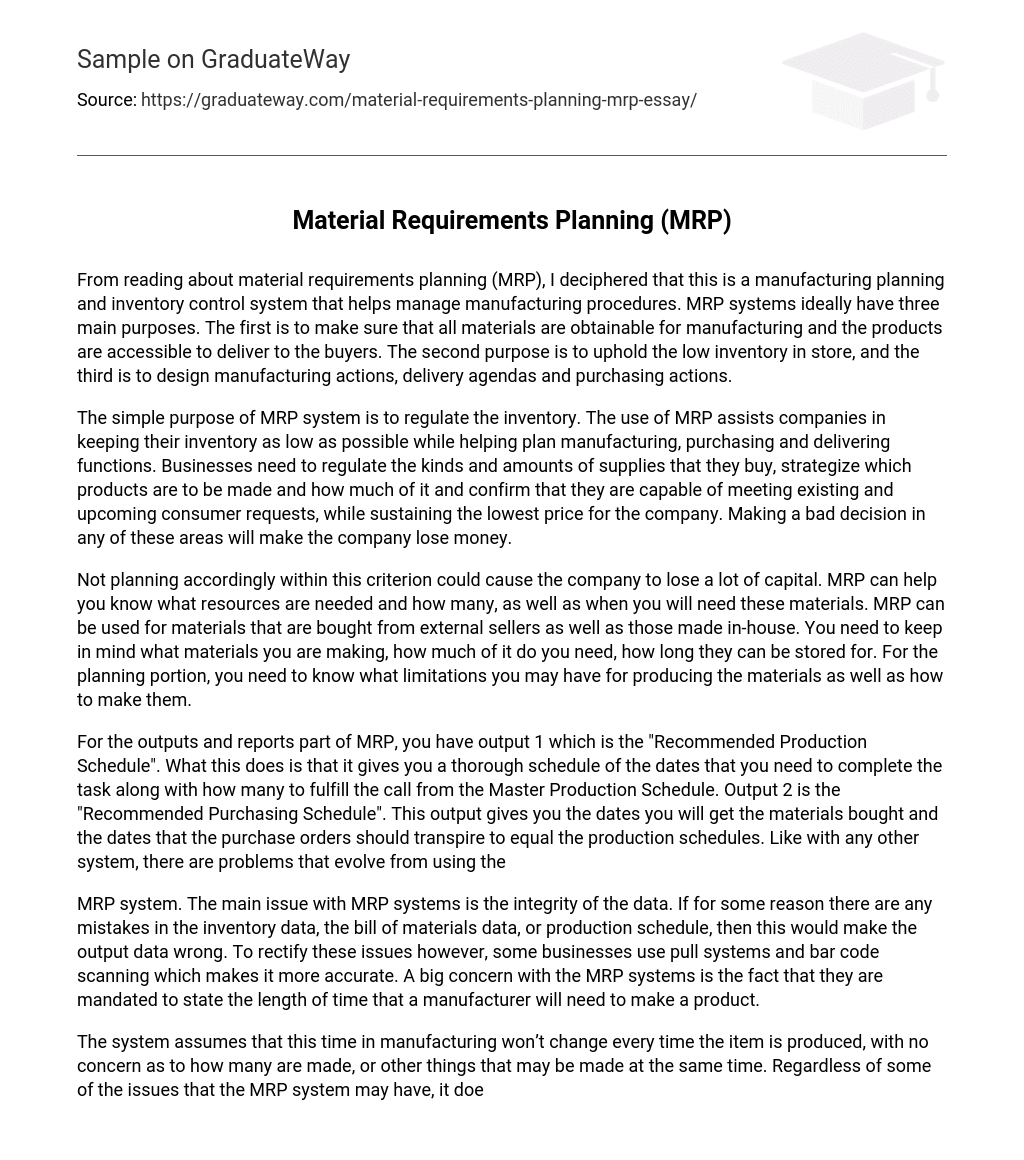From reading about material requirements planning (MRP), I deciphered that this is a manufacturing planning and inventory control system that helps manage manufacturing procedures. MRP systems ideally have three main purposes. The first is to make sure that all materials are obtainable for manufacturing and the products are accessible to deliver to the buyers. The second purpose is to uphold the low inventory in store, and the third is to design manufacturing actions, delivery agendas and purchasing actions.
The simple purpose of MRP system is to regulate the inventory. The use of MRP assists companies in keeping their inventory as low as possible while helping plan manufacturing, purchasing and delivering functions. Businesses need to regulate the kinds and amounts of supplies that they buy, strategize which products are to be made and how much of it and confirm that they are capable of meeting existing and upcoming consumer requests, while sustaining the lowest price for the company. Making a bad decision in any of these areas will make the company lose money.
Not planning accordingly within this criterion could cause the company to lose a lot of capital. MRP can help you know what resources are needed and how many, as well as when you will need these materials. MRP can be used for materials that are bought from external sellers as well as those made in-house. You need to keep in mind what materials you are making, how much of it do you need, how long they can be stored for. For the planning portion, you need to know what limitations you may have for producing the materials as well as how to make them.
For the outputs and reports part of MRP, you have output 1 which is the “Recommended Production Schedule”. What this does is that it gives you a thorough schedule of the dates that you need to complete the task along with how many to fulfill the call from the Master Production Schedule. Output 2 is the “Recommended Purchasing Schedule”. This output gives you the dates you will get the materials bought and the dates that the purchase orders should transpire to equal the production schedules. Like with any other system, there are problems that evolve from using the
MRP system. The main issue with MRP systems is the integrity of the data. If for some reason there are any mistakes in the inventory data, the bill of materials data, or production schedule, then this would make the output data wrong. To rectify these issues however, some businesses use pull systems and bar code scanning which makes it more accurate. A big concern with the MRP systems is the fact that they are mandated to state the length of time that a manufacturer will need to make a product.
The system assumes that this time in manufacturing won’t change every time the item is produced, with no concern as to how many are made, or other things that may be made at the same time. Regardless of some of the issues that the MRP system may have, it does help companies reduce cost and inventory on hand. It helps companies produce what they need, when they needed to meet any demands that any consumers may have as well as deadlines etc. This system works well with many different types of companies and it seems to be fairly efficient.





